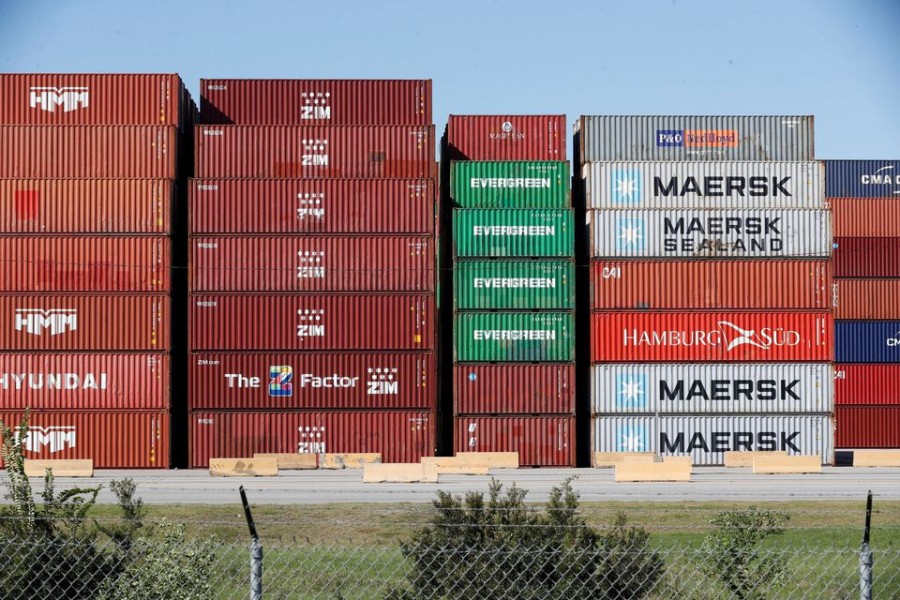Bangladesh switching to RTA for larger regional trade
FTA deals may not work in tackling post-graduation trade challenges

Published :
Updated :

Bangladesh is switching to a new set of policy guidelines titled 'Regional Trade Agreement (RTA)' as the existing FTA regime is deemed obsolete for helping Bangladesh tackle post-graduation trade challenges.
As part of the initiative, the government has already drafted the policy guidelines focused on larger regional trade on win-win soft-term deals.
It has decided on the switch over trading instruments as the FTA or free-trade agreement policy guidelines 2010 is seen "not time-befitting", according a commerce ministry document.
The Ministry of Commerce has also prepared the draft RTA policy by updating the existing FTA policy guidelines 2010 by incorporating changing patterns of the present global and domestic trade spirits.
Now, the draft will be presented at an inter-ministerial meeting that is expected to be held sometime in the current month.
The ministry is also expected to place the draft with Cabinet Division by June 2022 on completion of necessary works for final shaping.
Bangladesh is set to graduate from the least-developed country status by 2026, in a much-sought-after fortune change of the nation if everything goes well with fulfillment of the rest of UN-set criteria.
Earlier, the commerce ministry had asked the Bangladesh Trade and Tariff Commission (BTTC) to update the existing policy guidelines on FTA-2010.
The new policy on trade agreement will have issues such as investment, trade facilitation, technology, environment-related issues, intellectual-property rights etc.
In the 2010 guidelines, the FTAs were mainly focused on matters related to goods and services trade.
Talking to the FE, a senior official of the commerce ministry said, "We have followed the best practices of global trade during preparing the draft policy.
"We have given priority to the issues after the LDC graduation in 2026 by updating guidelines to secure interests of the country after graduation from the LDC status."
Currently, the ministry is at the negotiation stage on FTA with 26 countries, he mentions.
Bangladesh may lose duty-free export facility in its major export markets nearly four years after the graduation.
Currently, Bangladesh is sincerely working to strike FTA with different developed countries as the countries will not provide duty-free facility after its graduation from the world's poor-country club.
Bhutan is the first country with which Bangladesh signed the bilateral preferential trade agreement (PTA) in 2020.
Vietnam, Thailand, Morocco, Malaysia, USA, Japan, Canada, Senegal, Nigeria, Kenya, South Korea, India, KSA, South Africa, Mexico and Egypt, and three regional blocs-Gulf Cooperation Council, Eurasian Economic Commission and MERCOSUR-are the other countries or regions under working for trade negotiations on FTA or others, an official says.
The commerce ministry's official says the government is focusing on FTA with the major trade partners to continue the duty-free market access in after- graduation period.
Currently, Bangladesh is facing stiff competition in major export markets with the countries having FTAs with them.
To boost export and diversify exports, the government is now emphasizing FTAs with the potential trade partners, the official says, adding that the global trade pattern has changed in the last one decade and developed countries focus on emerging issues while signing FTAs or PTAs.
"The Bangladesh government has already started talks aimed at signing an FTA with China. More efforts are needed to conclude the negotiations and materialise the agreement," he adds.
Bangladesh's products have so far got duty-free market access to only 38 countries, leaving vast swathes of potential untapped, trade officials say.
Of the countries, 28 member-states of the European Union (EU) are giving duty-free market facilities for Bangladeshi products.
Besides, Japan, Chile, Norway, New Zealand, Australia, Canada, Russia and India are providing such marketing privilege.
Realizing the urgency, the government is trying to secure duty-free market access to a number of countries after LDC graduation, says a commerce ministry's high official.
Currently, Bangladesh has achieved duty-free and quota-free (DFQF) market access from the developed and advanced developing countries as member of the World Trade Organisation (WTO) that is called generalized system of preference (GSP).
Sectors that stand to benefit from the access include garments, textile fabrics, yarns, and leather, industry-insiders told the FE.
Developed and emerging economies could play a crucial role in helping developing countries like Bangladesh to improve their trade performance by according duty-free market access, sector-insiders say.
"The duty-free market access will help us accelerate trade, generate more employment and spur growth," another official says.
He estimates that Bangladesh's exports would rise by over U$6.0 billion a year if countries in Africa, Latin America and Southeast Asia offer duty-free access.
Recently, China decided to grant duty-free and quota-free (DFQF) access to 98 per cent of Bangladeshi products, which may help boost exports while lowering the ballooning bilateral trade imbalance, officials say.
In July 2020, the world's second-largest economy granted 97 per cent of Bangladeshi products duty-free access to its market.
Commerce ministry sources say only India has given duty-and quota-free market access to Bangladesh's all products, bar 25 tobacco and drug items, under the umbrella of trade deal SAFTA of the South Asian Association for Regional Cooperation (SAARC), according to the commerce ministry.
Bangladeshi products that are getting free-market access include readymade garments, knitwear items, frozen shrimp, ceramics, plastic products, leather and jute products, home textiles, bicycles and pharmaceuticals.
The government has also beefed up efforts to set up Joint Economic Commission and sign bilateral trade deals with different countries to boost exports from Bangladesh.
The reporter could not reach the senior commerce secretary for taking his comment about the matter due to his stay outside the country.
rezamumu@gmail.com


 For all latest news, follow The Financial Express Google News channel.
For all latest news, follow The Financial Express Google News channel.